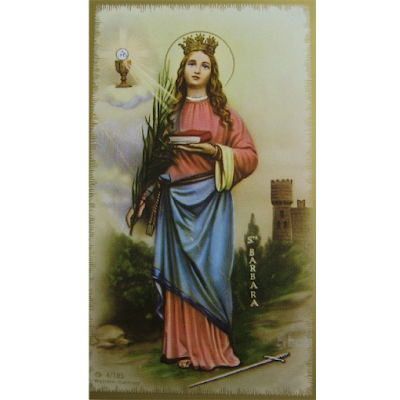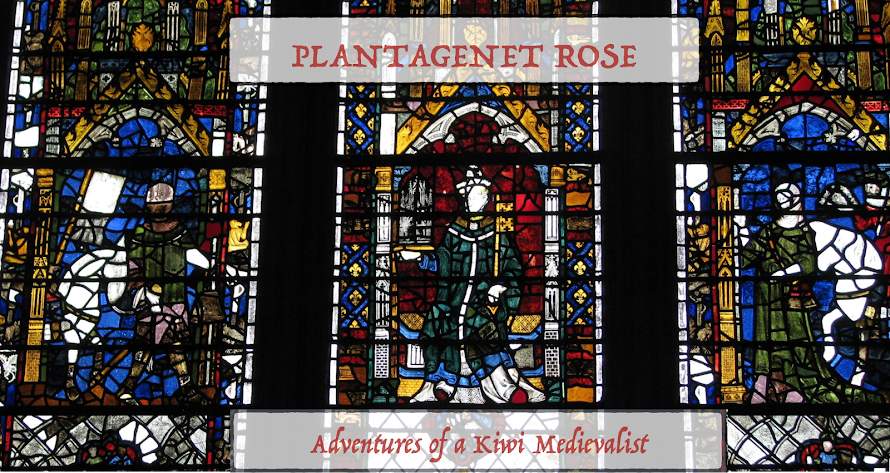 |
| via |
4th December is the feast day of St Barbara, known in German as Barbaratag. Barbara is thought to have lived in what is now Turkey. She died around 306, martyred by her own father after converting to Catholicism.
Her father, Dioscorus, apparently kept her locked up in a tower when he was away from home so that his daughter's virtue would remain unsullied. You can see the tower, and just make out its three windows, in the picture above; legend has it that it originally had only two windows and that Barbara added the extra one after her conversion, as a symbol of the Trinity.
Dioscorus, coming home to find the extra window and his daughter a Christian, was not happy. He had her tortured and eventually executed. After burning her failed (the torches were apparently miraculously extinguished as soon as they came near her), Dioscorus himself beheaded her. However, his triumph was cut short; on his way home he was struck dead by lightening!
St Barbara is one of the Fourteen Holy Helpers, and (presumably due to the method of her father's premature but hardly untimely end) is also invoked against thunderstorms. Because of her association with fire, she is also the patron of firemen and those who handle explosives, including miners and artillerymen. Her name comes from the Greek, meaning 'foreign' or 'stranger.'
Der Barbarazweig
 |
| via |
An old German tradition attached to Barbaratag is the Barbarazweig (Barbara branch). According to legend, while locked in her cell waiting execution, Barbara watered a stick of cherry with her drinking water (what the branch was doing there is not recorded!) The branch blossomed, comforting her with its beautiful flowers.
The German tradition sees cherry branches, or other fruit trees such as apple, peach or pear, brought into the house on St Barbara's Day. The idea is that the branch blossoms in time for Christmas, thus recalling the "Flos Carmeli... Radix Jesse, germinans flosculum" [Flower of Carmel, stem of Jesse, who bore one bright flower] - i.e. Mary and her Son.

No comments:
Post a Comment